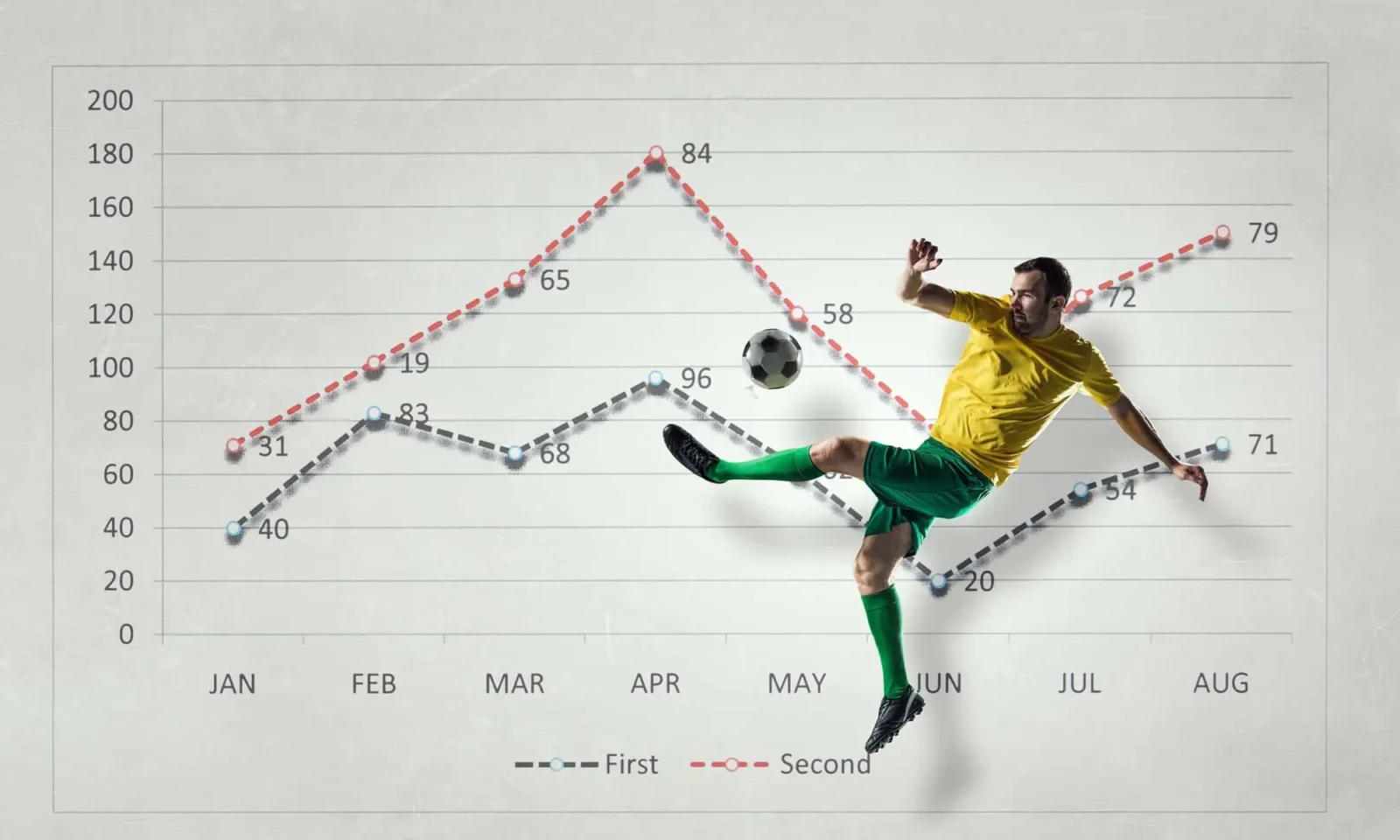In sports betting, the fusion of competition and strategic analysis captivates enthusiasts. Novices and veterans alike turn to platforms like Betcris for data-driven insights. Deciphering statistics and trends becomes paramount for smart wagers. The thrill intensifies as informed decisions heighten the suspense of each game.
Sports betting combines the thrill of competition with the strategic analysis of data. Whether you’re a seasoned bettor or a newcomer to online sports betting platforms like Betcris and others, understanding statistics and trends is crucial for making informed decisions.
Gather Relevant Data
Before embarking on your sports betting journey, it’s crucial to gather a comprehensive dataset that encompasses various aspects of the sport or league you’re interested in. This data serves as the foundation for informed analysis and decision-making.
Here’s how to effectively gather relevant data:
Historical Game Results
Access historical game results for the teams or players you’re interested in betting on. These results provide valuable insights into past performance, including winning streaks, scoring trends, and head-to-head matchups.
Player Performance Metrics

Collect data on individual player performance metrics, such as scoring averages, assists, rebounds, and turnovers. Player statistics offer valuable insights into the strengths and weaknesses of key contributors, helping you assess their impact on game outcomes.
Team Rankings
Obtain up-to-date team rankings and standings within their respective leagues or divisions. Rankings provide context regarding overall team performance and can help you identify teams with a competitive edge over their opponents.
Injury Reports
Stay informed about player injuries and their potential impact on game outcomes. Monitoring injury reports allows you to anticipate lineup changes, assess the availability of key players, and adjust your betting strategy accordingly.
Weather Conditions
Consider the influence of weather conditions on outdoor sports, such as football, baseball, or soccer. Factors like wind, rain, or extreme temperatures can affect gameplay and influence scoring outcomes. Gathering weather forecasts and historical weather data helps you account for these variables when making betting decisions.
Reliable Sources
Rely on reputable sources for accurate and up-to-date sports data. Official league websites, sports analytics platforms, and established sports news outlets are valuable resources for accessing reliable data and information. Avoid relying solely on unverified sources or rumors, as inaccurate information can lead to flawed analysis and misguided betting decisions.
By gathering relevant data from trustworthy sources, you can equip yourself with the necessary information to conduct thorough analysis and make informed sports betting decisions. Remember to stay diligent in updating your dataset regularly to adapt to changing circumstances and maximize your chances of success in the dynamic world of sports betting.
Understand Key Metrics

Familiarize yourself with essential statistical measures to inform your sports betting decisions. Analyzing win-loss records provides insight into team performance throughout the season, allowing you to identify patterns such as winning streaks or consistent losses that can influence your bets.
Point spreads indicate the predicted margin of victory, helping you assess the likelihood of a team covering the spread. Over/under totals predict the total points scored in a game, and analyzing historical data can help identify trends in high-scoring or low-scoring matchups.
Additionally, evaluating player statistics—including scoring averages, assists, rebounds, and turnovers—allows you to gauge individual player performance and consider factors such as injuries or recent form.
Explore Historical Trends
Look beyond individual games and examine long-term trends to gain a deeper understanding of teams and matchups. Consider home vs. away performance, as some teams excel in their home environment while others perform better on the road.
Study head-to-head records to understand how teams historically match up against each other, as certain teams may consistently dominate their rivals. Identify streaks and slumps, as teams or players on a hot streak may continue their momentum, while those in a slump may struggle to perform.
Statistical Models and Regression Analysis
Advanced bettors often utilize statistical models and regression analysis to predict sports outcomes more accurately. Multiple linear regression allows for the prediction of game outcomes based on various independent variables, such as team statistics and player performance.
Logistic regression helps assess the probability of specific events occurring, such as a team winning or covering the spread. By employing these advanced analytical techniques, bettors can gain deeper insights into the factors that correlate with success in sports betting and make more informed wagering decisions.
Keep Up with News and Updates

Stay informed about team news, injuries, and lineup changes, as these can significantly impact betting outcomes. Unexpected developments, such as a star player’s injury or a last-minute lineup change, can alter the dynamics of a game and affect the odds.
Follow reliable sports journalists and official team accounts on social media platforms like Twitter for real-time updates and insights.
Avoid Emotional Bias
Emotions have the potential to cloud judgment, leading bettors to make irrational decisions based on personal preferences or loyalty to a particular team. To mitigate emotional bias, focus on data-driven analysis rather than subjective feelings.
Evaluate teams objectively based on performance metrics, historical data, and relevant statistics to make informed betting choices.
Bankroll Management
Effective bankroll management is essential for long-term success in sports betting. Regardless of the quality of analysis, there’s always a risk of losses. Establish a budget dedicated to sports betting and avoid risking more than you can afford to lose.
Additionally, resist the urge to chase losses by increasing bet sizes to recoup previous losses. Instead, practice disciplined bankroll management by adhering to predetermined betting limits and maintaining a diversified betting portfolio.
Monitor Betting Trends

Track how the betting market responds to specific games and betting lines. Pay attention to shifts in betting odds and the volume of wagers placed on each side.
If the majority of bettors heavily favor one team or outcome, consider whether it aligns with your analysis or if there may be value in betting against the crowd. Monitoring betting trends can help identify potential discrepancies between perceived and actual probabilities, presenting opportunities for value betting.
Adapt and Learn
Sports betting is a dynamic landscape that continuously evolves. Stay proactive by refining your analysis techniques, learning from past mistakes, and adapting to changing trends and market conditions.
Embrace a growth mindset and view losses as opportunities for improvement rather than setbacks. By continuously honing your skills and knowledge, you can enhance your ability to make informed betting decisions and achieve long-term success in sports betting.

